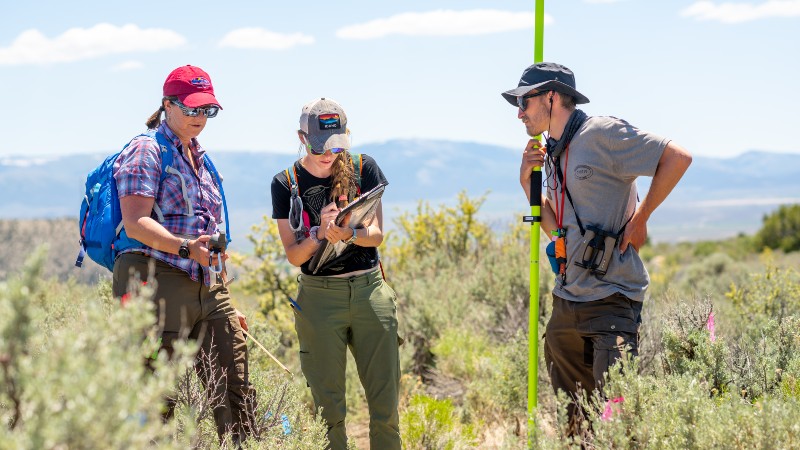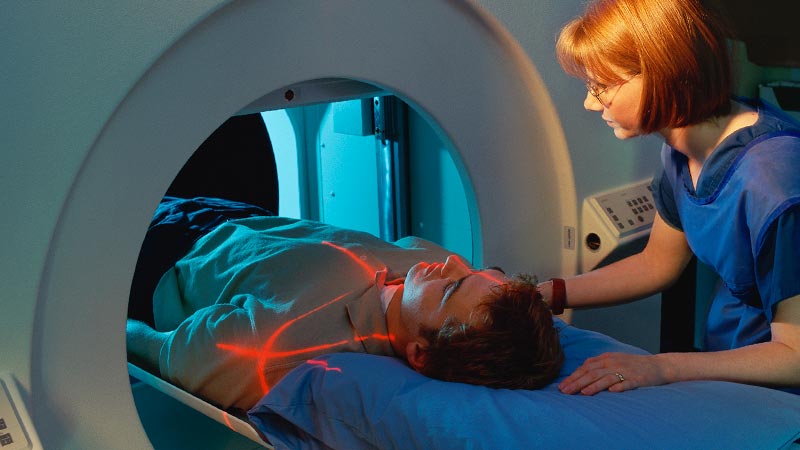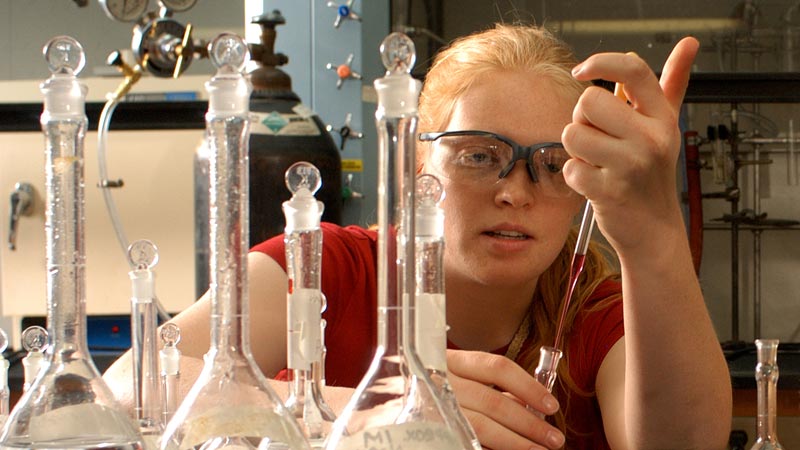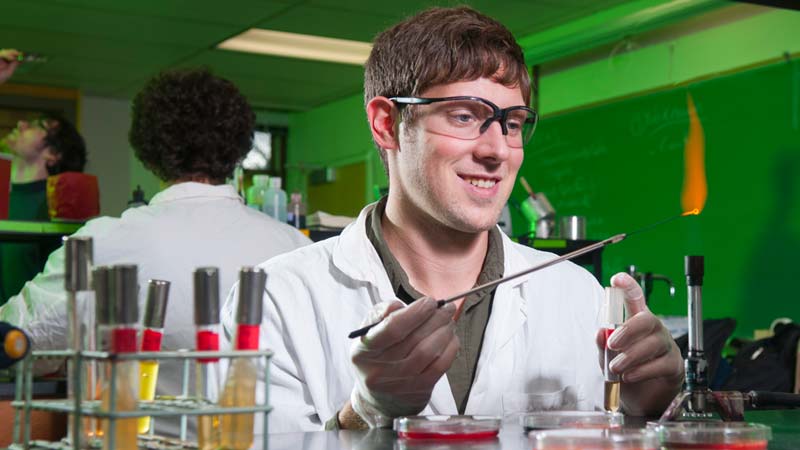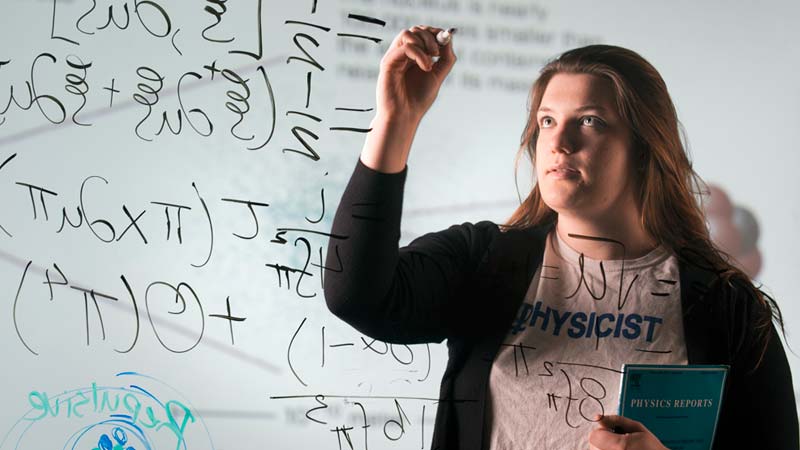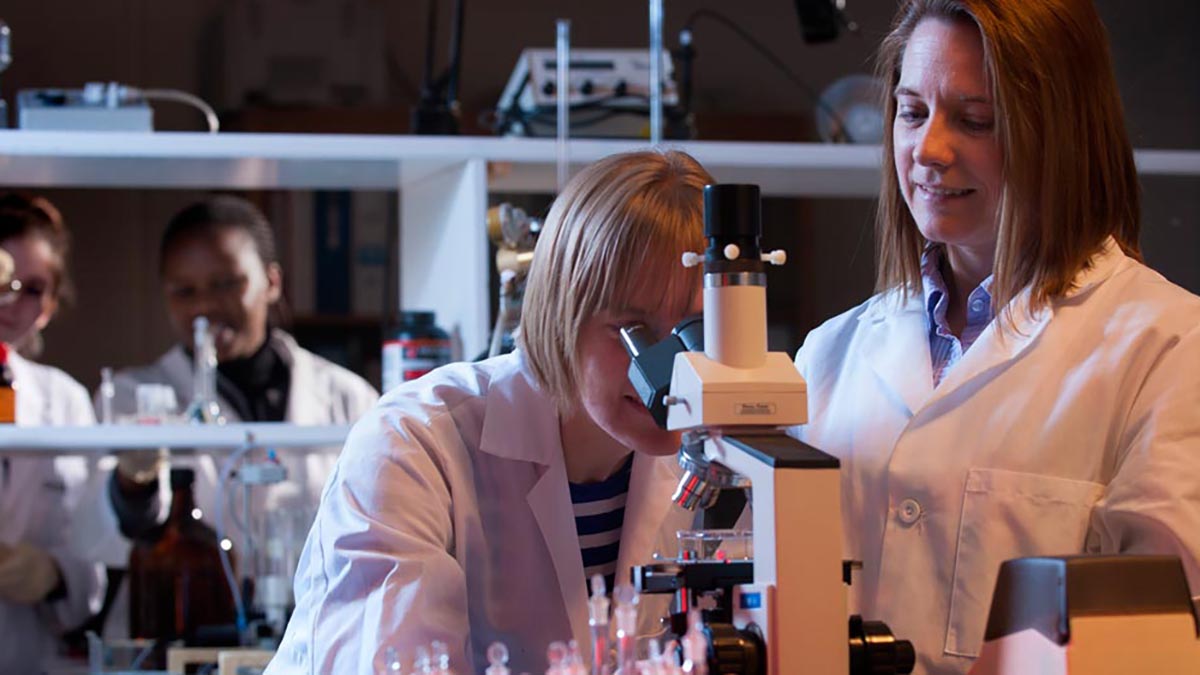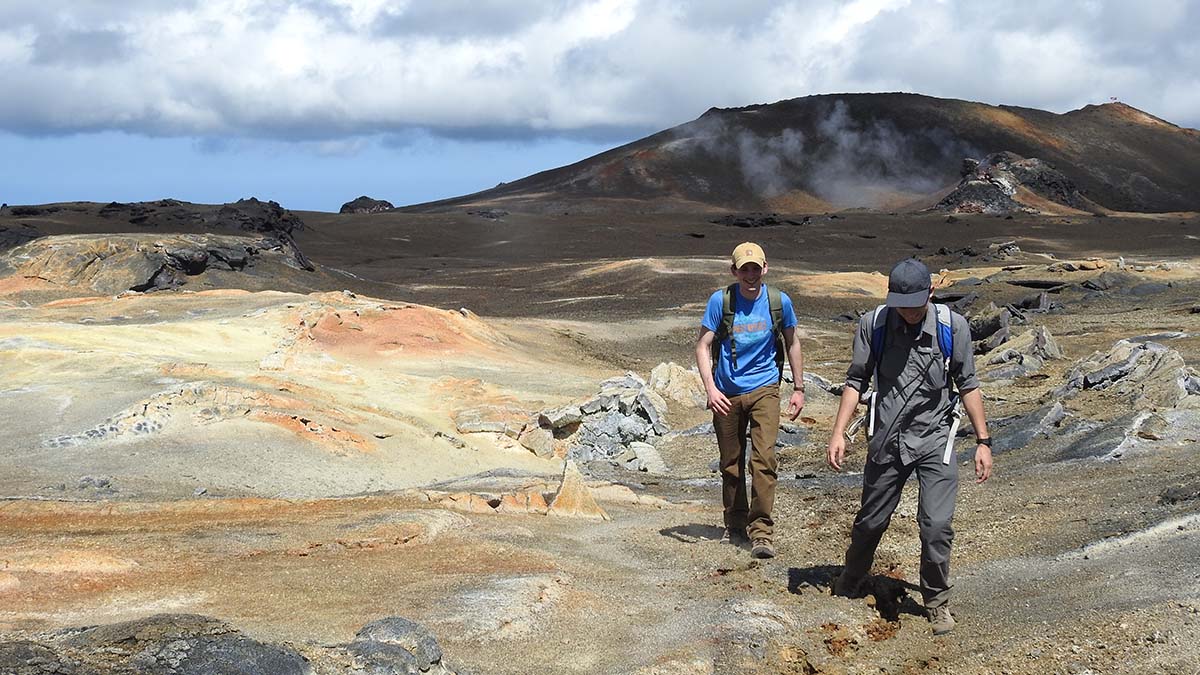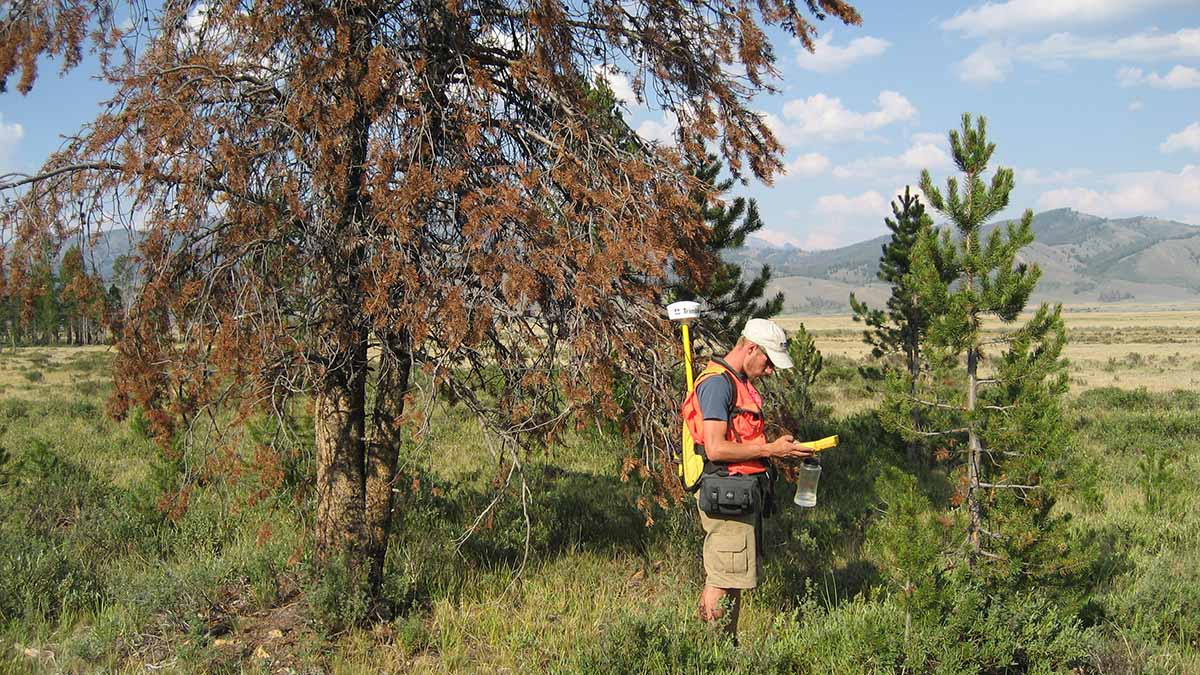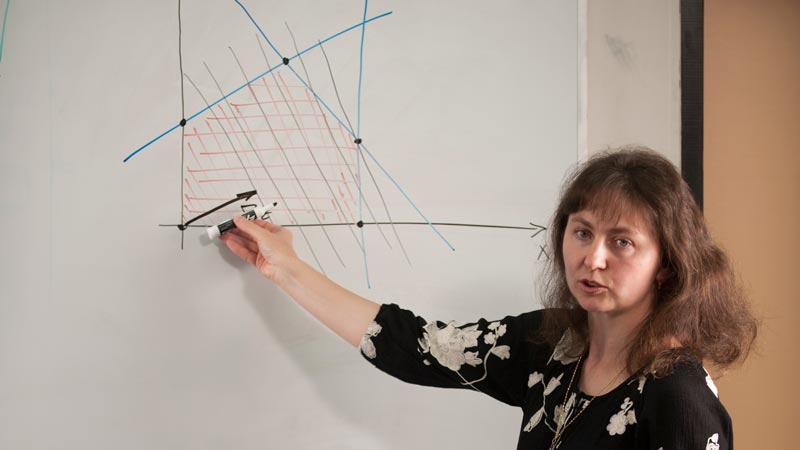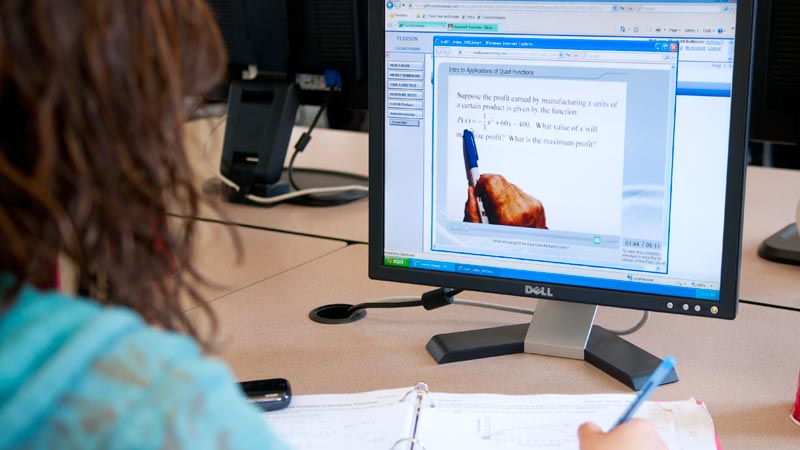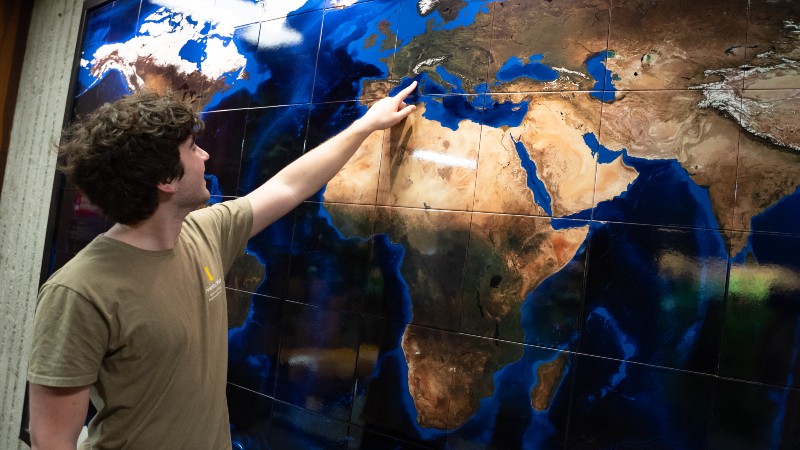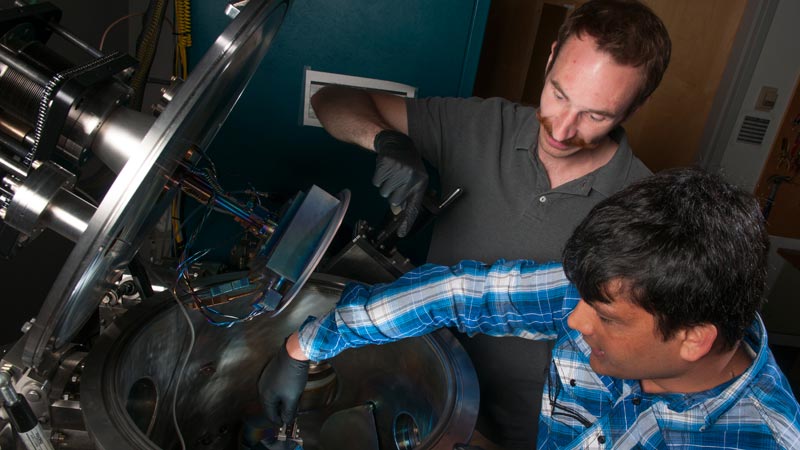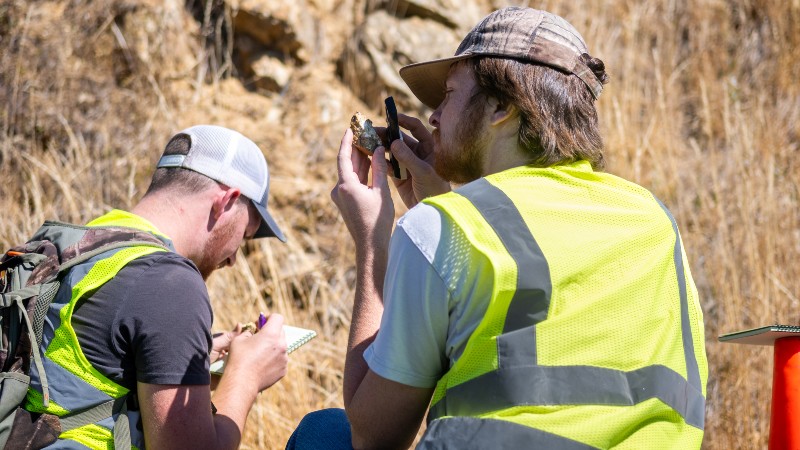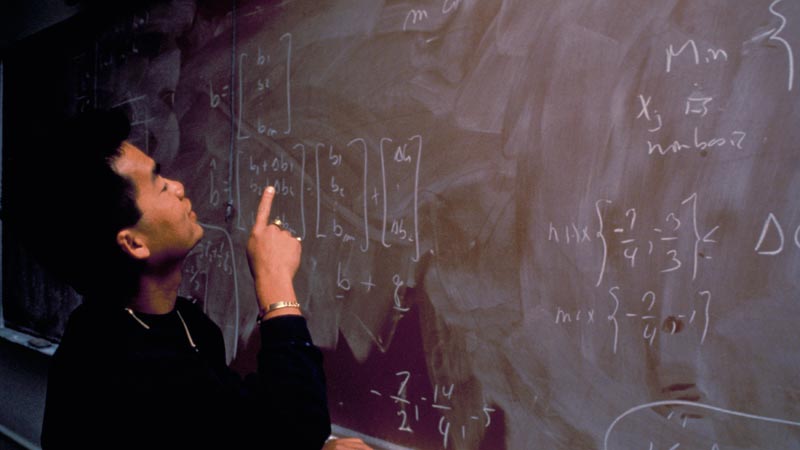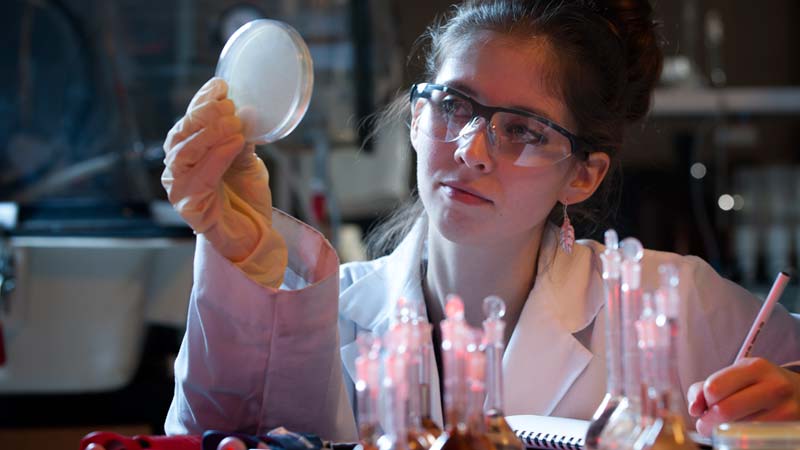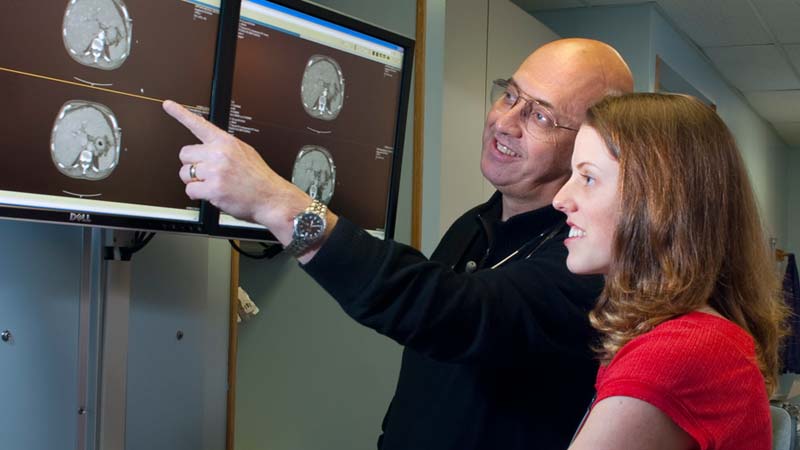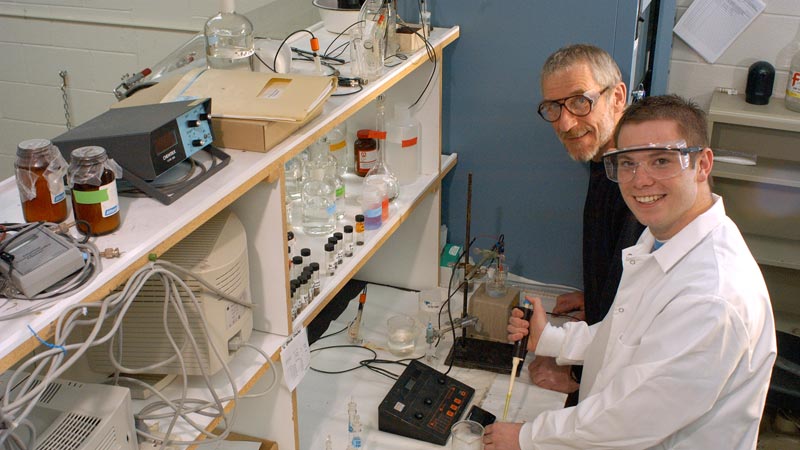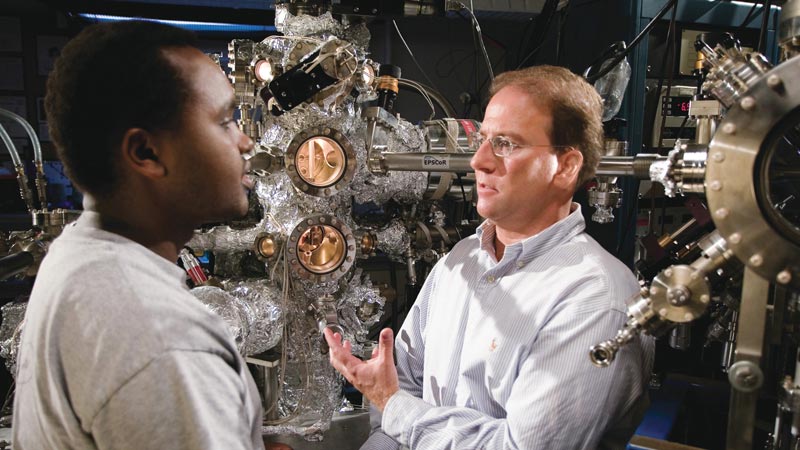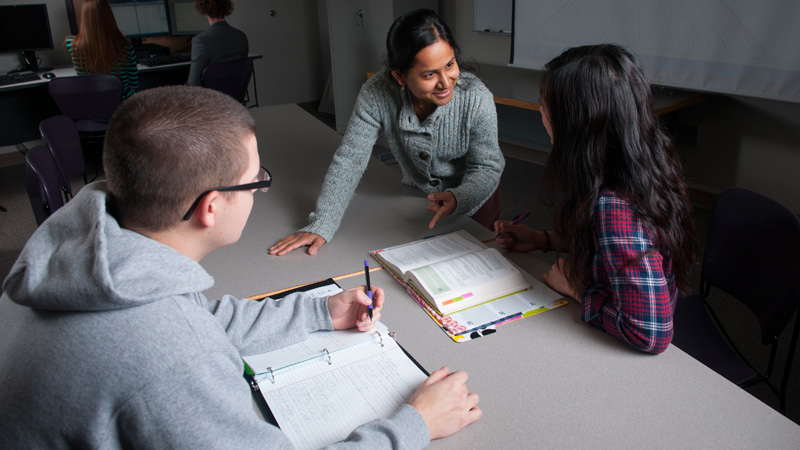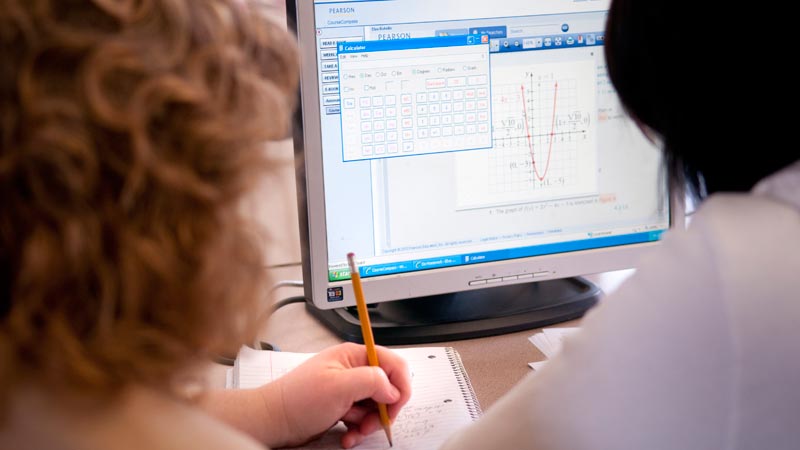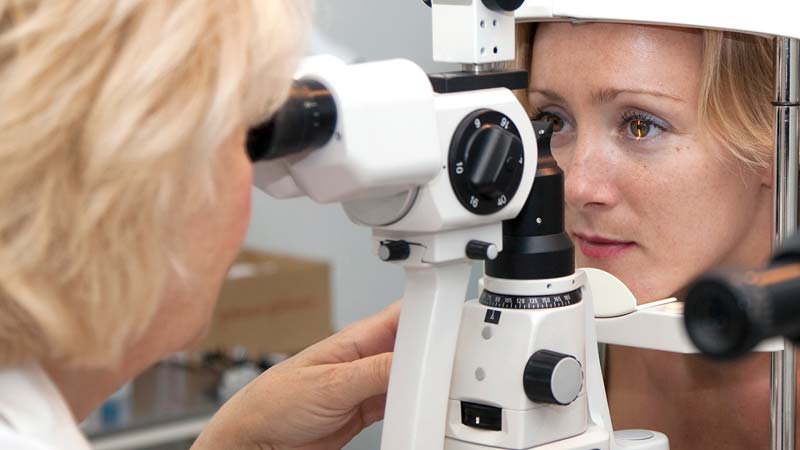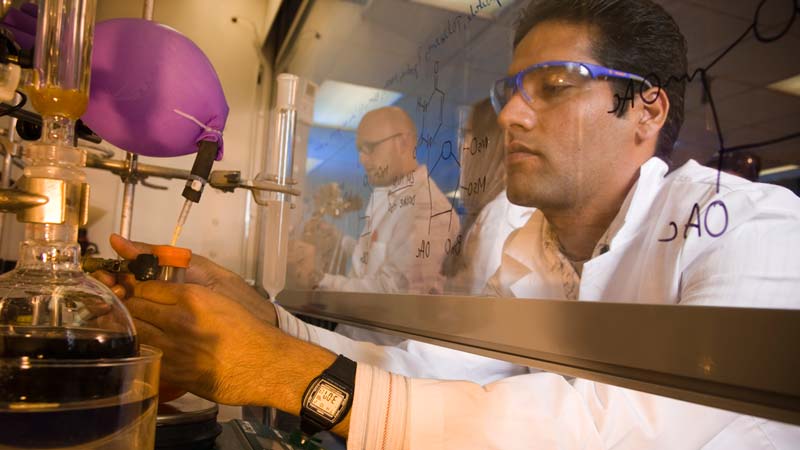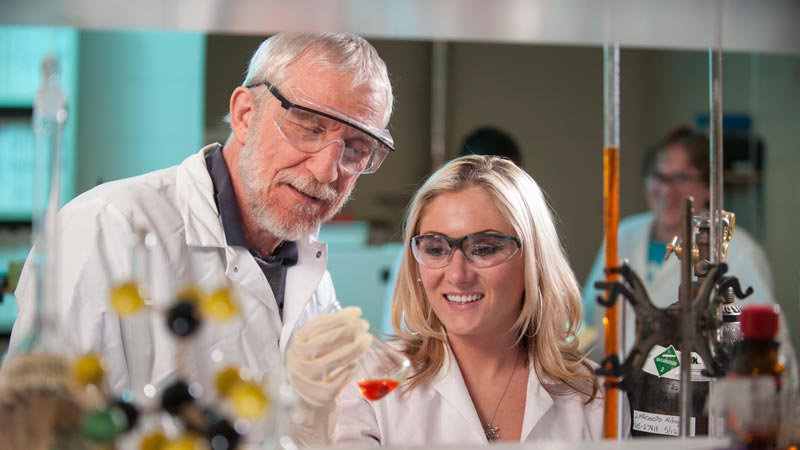Balancing human needs in the physical environment.
Explore the science of space and place and pursue the answers to important questions about how people interact with the environment, how the physical world changes over time, and how all of this affects the sustainability of human and natural systems in relation to global environmental change.
You’ll study geospatial methods such as spatial analysis, modeling, geographic information systems (GIS), remote mapping and other tools in addition to traditional topics like digital mapping and field methods in preparation for a career as a cartographer or spatial modeler, among many others.
This degree could be a good fit if you:
- Enjoy science in relation to the physical earth and its properties
- Want to be a part of the solution in addressing nationwide climate change concerns
- Like analyzing data and applying the results
- Want to develop sustainable strategies for resource and energy development
With this degree, you could become a/an:
- Climate change scientist
- Hydrologist
- Geographer
- Spatial Analyst
- Environmental consultant
- Risk assessment/compliance specialist
- Environmental planner
- Land management
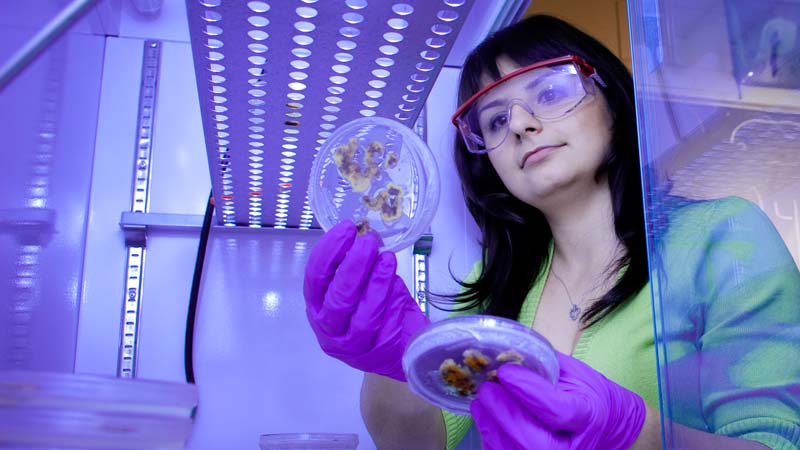
Biochemistry, B.S.
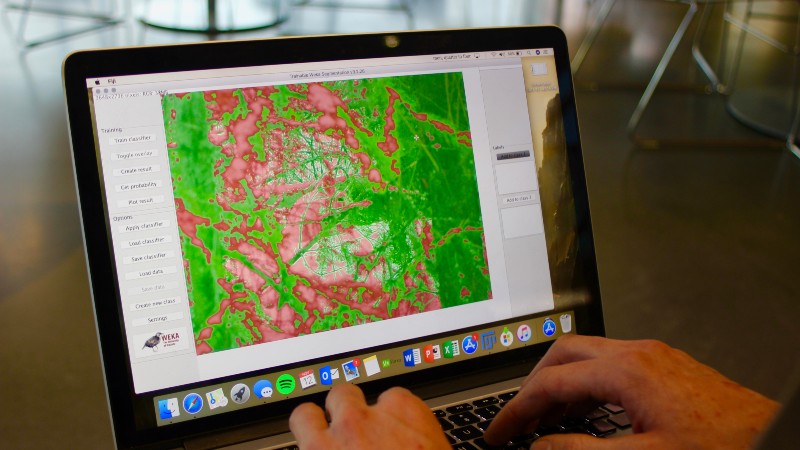
Climate Change and Solutions, B.S.

